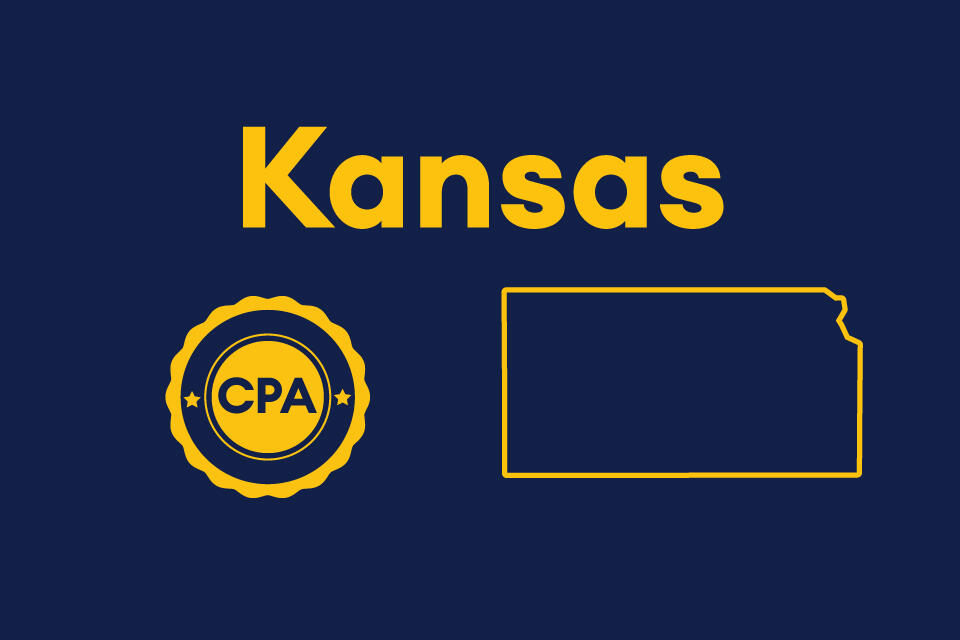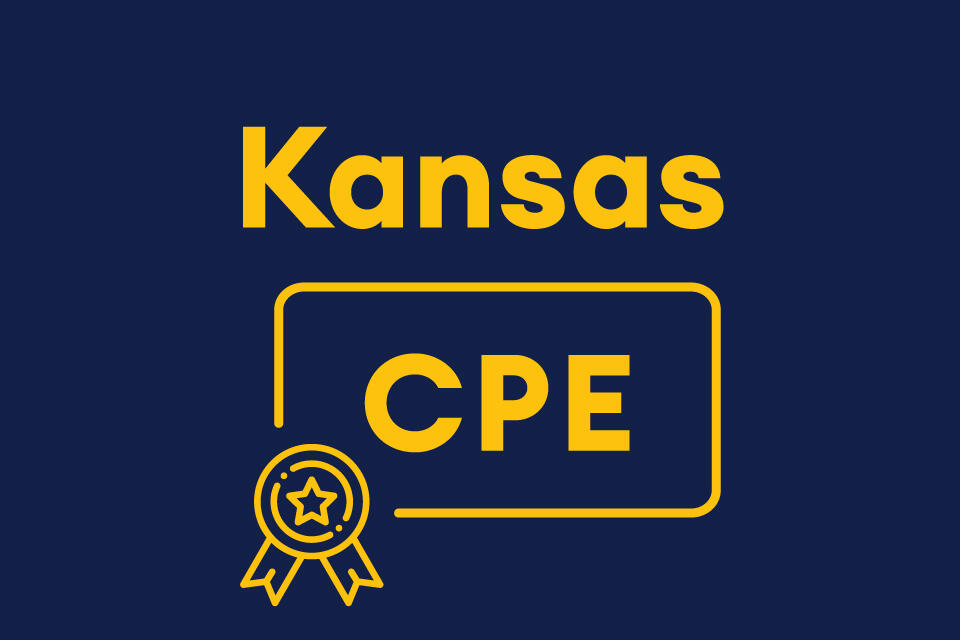Kansas CPA requirements
If you’re ready to become a certified public accountant, the first step you should take is to check the Kansas CPA requirements. This will help you to put a plan in place, know what documentation you’ll need and avoid setbacks. For additional information, check with the Kansas Board of Accountancy.
CPA requirements in Kansas
In addition to meeting the requirements to sit for the CPA Exam, you must also meet residency, ethics, experience and education requirements.
Education requirements
Unlike most states, Kansas’s CPA requirements for education are the same for those they have in place to take the CPA Exam, so will only need the approved 150 semester hours (225 quarter hours) listed above and a minimum of a bachelor’s degree with a concentration in accounting to sit for the exam.
Residency requirements
While Kansas does not require United States citizenship, you must be a resident, have a place of business as a public accountant or hold permanent employment at a public accounting firm in the state.
Experience requirements
You must complete one year of accounting experience which must include providing any type of service or advice involving the use of attestation or non-attestation skills. Your work experience must be verified by an active CPA. Also, Kansas will accept experience gained through employment in government, industry, academia or public practice.
Ethics requirements
CPA candidates must pass Professional Ethics: The AICPA’s Comprehensive Course for Licensure.
Kansas CPA license renewals
CPA licenses in Kansas are renewed every two years. They expire on June 30 of each odd or even year, based on the year the permit was issued or renewed.


